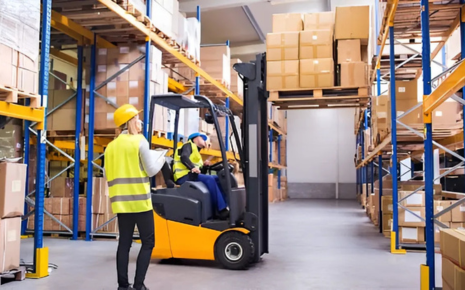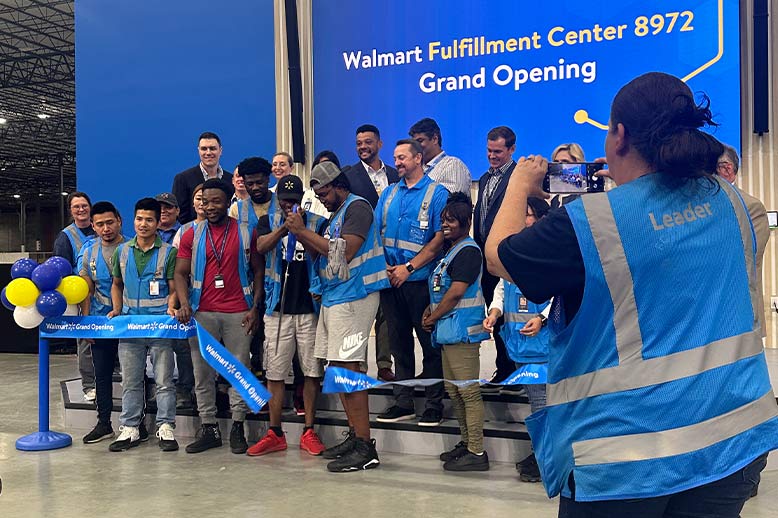What Hancock County Businesses Need to Know About Tariffs and How it Can Impact Your Business

2 Jun 2025
News
In a county known for its strategic location, bustling logistics network, and tight-knit business community, Hancock County, IN, is no stranger to global connections. From local manufacturers sourcing raw materials from overseas to small businesses importing specialty goods, our economy, like many others, relies on consistent global trade.
On April 2, 2025, President Trump signed an executive order imposing a minimum 10% tariff on all U.S. imports and additional duties—up to 50%—on imports from 57 specific countries. For Hancock County businesses that depend on international suppliers to keep shelves stocked and production lines moving, this shift raises urgent questions: What will this cost us? Can we pivot quickly enough? And how do we prepare for what's ahead?
Tariffs, Defined: A National Policy with a Local Price Tag
At its core, a tariff is a tax placed on imported goods. It's paid by the U.S. companies that bring foreign products into the country, not by the foreign sellers themselves. When tariffs go up, importing goods becomes more expensive for U.S. businesses.
Many companies and business owners raise their prices to absorb the cost. Others may cut spending, delay investments, or pause hiring decisions. Either way, the effects are tangible, especially in communities like Hancock County that rely on smooth and cost-effective supply chains.
Why Hancock County Businesses Should Pay Attention
Hancock County's economic landscape includes manufacturers, distributors, and small businesses. Many of them depend on international supply chains to keep operations running smoothly. Here's how the new tariff landscape could affect local businesses:
Supply Chain Strains
Distribution and logistics businesses, cornerstones of the county's growth, may face higher costs for imported materials and goods. Tariffs can force supply chain disruptions, especially for companies that rely on parts or components from targeted countries. In a tight-margin industry, that can have a cascading effect on delivery timelines, labor needs, and operating budgets.
Manufacturers Face Margin Pressure
Manufacturers who rely on imported metals, components, or machinery could see significant spikes in input costs, affecting production schedules and profit margins. This pressure could lead to a reevaluation of contracts, scaled-back hiring, or even shifts in product pricing.
Small Businesses Feel the Pinch
Retailers and small enterprises that import specialty goods or raw materials may find themselves choosing between raising prices or reducing offerings. That's a tough trade-off when competing with larger companies that can more easily absorb or offset increased costs.
Best Practices for Hancock County Businesses Navigating Tariffs
Whether you're running a logistics hub, managing a production floor, or operating a boutique storefront, there are steps you can take to prepare:
Reevaluate Supply Chains
Look for suppliers in countries not affected by tariffs or, better yet, domestic alternatives. Diversifying your sources now can protect you from long-term disruption.
Communicate with Customers
If price increases become necessary, be transparent. Emphasize quality, local investment, and the external economic pressures that are influencing your business decisions.
Streamline Operations
Review internal processes and cut unnecessary expenses. Automation, inventory control, and lean management strategies can help offset higher input costs.
Seek Expert Guidance
Accountants, financial advisors, and economic development experts can help assess your exposure to tariffs and build a plan for sustainability. Even small tweaks to your operations can yield meaningful savings.
Consider Financial Flexibility
A business line of credit or contingency fund can help bridge short-term disruptions. With interest rates currently lower than historical averages, now may be a strategic time to secure flexible financing.
Your Next Step: Stay Informed, Stay Connected
Hancock County businesses don't have to navigate this uncertainty alone. The Hancock Economic Development Council (HEDC) is committed to supporting local companies adapting to global shifts.
The HEDC is your go-to resource. Reach out today for expert guidance, connections, and tools to help your business stay resilient in an evolving economic landscape.
More Topics


Indiana farmers celebrate 2025 legislative wins, but key transition tax credit falls short
May 27 2025


